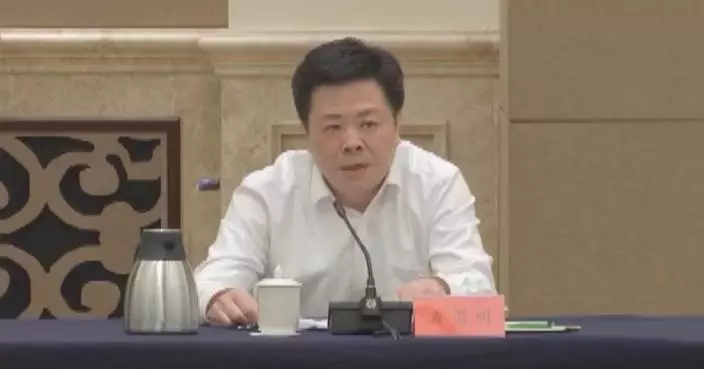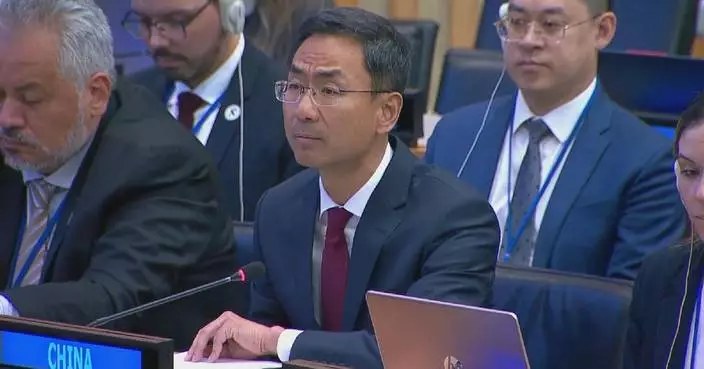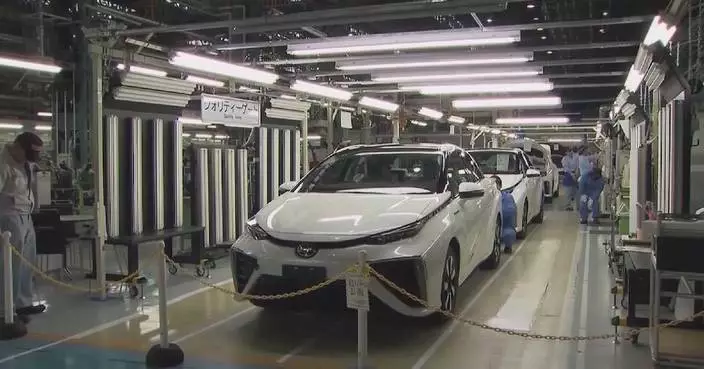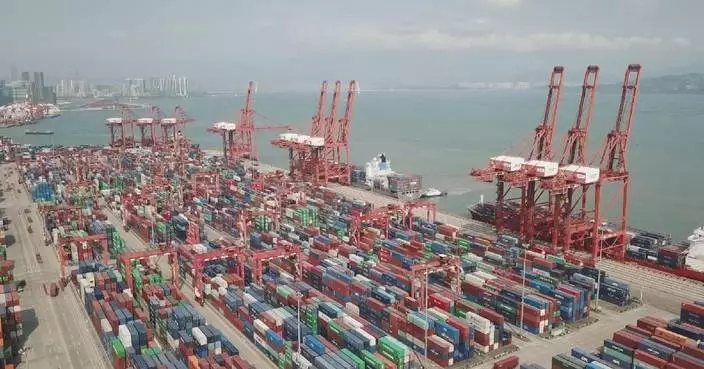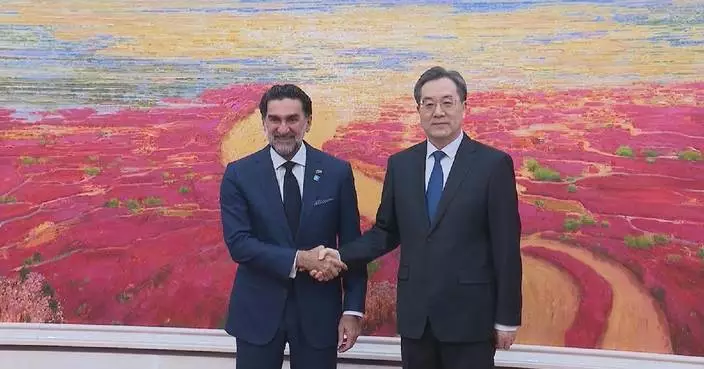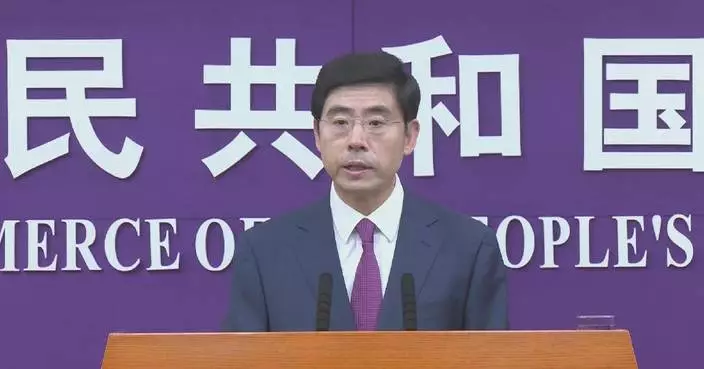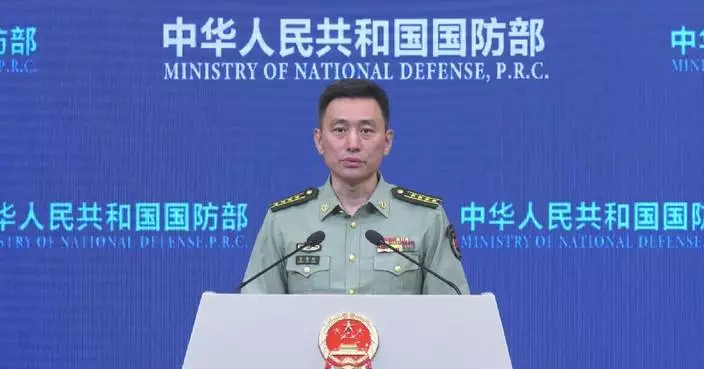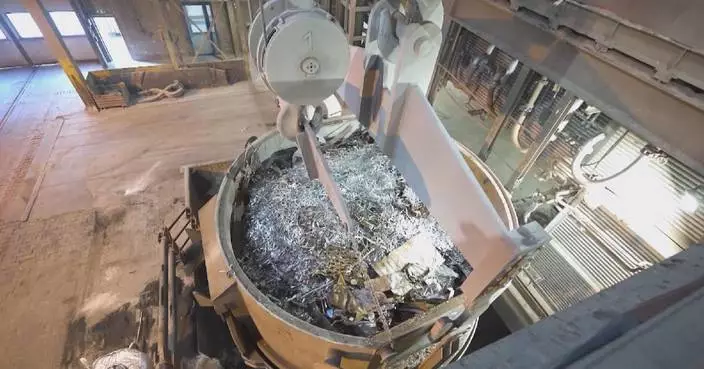Robotics experts and industry insiders weighed in the cost control of China’s humanoid robots and the country's unique edge in the future development of the sector.
In a panel discussion recently aired on China Central Television (CCTV), leading entrepreneurs and experts from China's robotics industry gathered to discuss the future development of humanoid robots.
Two of the guests brought the latest models of their new launches to the show where the robots performed various tasks like having a conversation, organizing toys and dancing.
Wang Xingxing, founder and CEO of Unitree Robotics, introduced to the audience that the basic model of their G1 robots released just a few weeks ago was priced at 99,000 yuan (about 13,930 U.S. dollars), which might be lower than many presumed.
"Actually I think the price of 99,000 yuan is not cheap at present. I think the price of humanoid robots will be much lower than it is now when they are put into mass production in the future. This is just the first step," said Wang Xingxing.
Wang He, assistant professor at the Center on Frontiers of Computing Studies (CFCS) of Peking University, said, "Considering the cost of computing power, if we put more advanced computing power in it (humanoid robot), the price will indeed be a little higher than it is now. But I think there is a consensus in the industry that in five years, the cost of a mature robot with high-end computing power should be between 50,000 and 100,000 yuan. Such a robot can really replace a production line worker or a shop clerk. I believe that this is the future within our reach."
In terms of the overall landscape of humanoid robot industry in the world, the United States, Europe and Japan have their own specialized areas and China also has its unique advantage, said Wang Tianmiao, professor at the School of Mechanical Engineering and Automation at Beihang University.
"China currently has a huge bonus of engineers, including artificial intelligence talent and robotics professionals. In addition, China has a large market, a single market and a huge supply chain system. In terms of the data mentioned earlier, China also has the largest training data. For example, when it comes to welding, China's welding industry may be the largest in the world. So I think in the near future, Chinese people will play a central role in the global robotics industry, especially in embodied intelligent robots," Wang Tianmiao said.
According to industry estimates, the scale of the global humanoid robot market could reach close to two trillion yuan (over 280 billion U.S. dollars) by 2030, with China's market scale expected to account for around 20 percent of that figure.

Cost control, unique edge of China's humanoid robots: experts
U.S. President Donald Trump's announcement of a 100 percent tariff on overseas-produced films has ignited fierce criticism from Hollywood and academic circles, amid growing concerns over the struggling domestic film industry.
Nicholas J. Cull, a professor at the University of Southern California's Annenberg School for Communication and Journalism, warned that the film tariff is fundamentally an act of political manipulation. He cautioned that it would heighten uncertainty in the industry, hinder international cultural exchange, sever global understanding, and undermine efforts toward international cooperation and dialogue.
"We live in a world where the problems are too big for any one country to solve, and the only way these problems are going to be solved is if people are able to work together. Now working together requires trust. Trust requires knowledge. One of the ways in which countries get to know each other, get to appreciate each other, is through exposure to their popular culture. Now it should be a time for learning more about each other, building trust between countries, and learning how to work together. And seeing each other's movies, I think, is a really important way of building knowledge and building trust. And so to me, the idea of limiting the distribution of films or penalizing production of foreign films is swimming in exactly the wrong direction at this particular moment in history," said Cull.
Cull also challenged Trump's justification that foreign films pose a threat to national security, calling it unconvincing and counterproductive to America's global image.
"He is making this important connection in that statement between what people see of America, how people feel about America, and how secure the United States is, but I don't think making crazy proposals and threatening our neighbors is a great way of helping America's reputation. I think that there must be better ways of going about this. So in the long term, this kind of behavior, I think increases mistrust about the United States," he said.
Cull further warned that the policy could trigger retaliatory measures from other countries, escalating into a cultural trade war that would limit the global flow of ideas and creativity.
"I think that in the more immediate future we can see that there will be a danger of reciprocal tariffs. So other countries will say, 'well, if you're going to impose a tariff on our production, we're going to impose a tariff on your production.' And that would be unhelpful. I think one of the things I would worry about is the world seeing less of one another's creativity, less of one another's perspectives. Right now, we need to know more about what each other are thinking, I feel," he explained.

Trump's film tariff fuels global cultural divide: scholar






